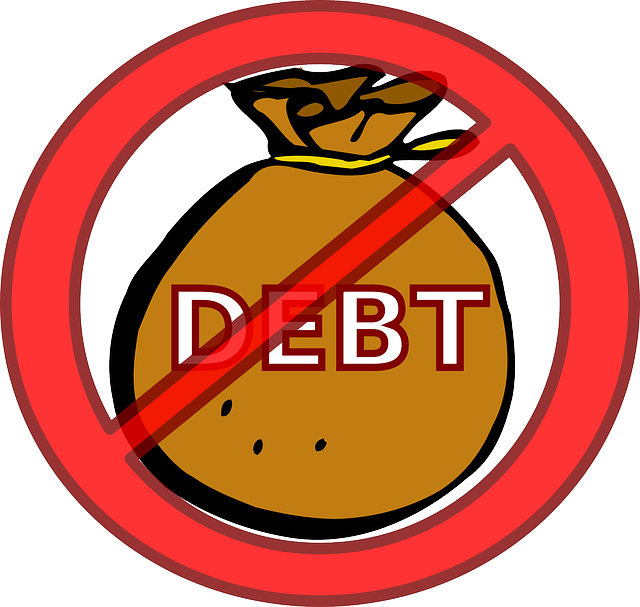Unemployment can lead to significant financial strain, making it hard to manage credit card debt due to high interest rates. Consolidating this debt through personal loans can simplify repayment and free up financial resources, but requires good credit which might be difficult to secure without a steady income. While consolidation offers relief, responsible financial management is crucial for long-term financial well-being.
Unemployment can profoundly impact financial stability, leading many to explore strategic solutions for managing debt. Among these, debt consolidation stands out as a powerful tool, especially for credit card debt. This article delves into the intricate relationship between unemployment and financial well-being, offering insights on how consolidating credit card debt through personal loans can provide much-needed relief. We’ll explore the benefits and considerations of this approach, guiding you in navigating this important financial decision.
- Understanding Unemployment and its Impact on Financial Well-being
- Exploring Debt Consolidation as a Strategic Solution for Credit Card Debt
- Navigating Personal Loans for Debt Consolidation: Benefits and Considerations
Understanding Unemployment and its Impact on Financial Well-being
Unemployment is a significant financial setback that can have long-lasting effects on an individual’s well-being and overall stability. When someone loses their job, it often leads to a cascade of challenges, particularly regarding debt management. The immediate impact includes a sudden loss of income, making it difficult to meet daily expenses, let alone existing financial obligations like credit card payments. This situation can quickly escalate into a crisis, especially for those heavily reliant on their salaries.
The effects of unemployment go beyond the immediate financial strain. It often results in a downward spiral where mounting debts, including credit card debt, become a burden. Many find themselves struggling to keep up with minimum payments, leading to higher interest charges and a sense of powerlessness. Debt consolidation becomes a crucial strategy for those seeking to regain control, allowing them to manage multiple debts efficiently. This process involves combining various debts, such as credit cards, into a single loan with potentially lower interest rates, making repayment more manageable.
Exploring Debt Consolidation as a Strategic Solution for Credit Card Debt
For many individuals grappling with unemployment, mounting credit card debt can feel like an insurmountable burden. In such challenging economic times, exploring strategic solutions is essential to regain financial control. One effective approach is consolidate credit card debt, which involves combining multiple high-interest credit card balances into a single loan with a potentially lower interest rate. This strategy offers several advantages: it simplifies repayment by reducing the number of bills to track; it can significantly lower monthly payments, easing cash flow constraints; and most importantly, it accelerates debt payoff by concentrating resources on one primary debt.
By consolidate credit card debt, individuals can break free from the cycle of high-interest charges and avoid the emotional strain associated with overwhelming financial obligations. This strategic move empowers them to focus on rebuilding their financial foundation, ultimately fostering a sense of security and stability during uncertain times.
Navigating Personal Loans for Debt Consolidation: Benefits and Considerations
When facing unemployment, managing multiple debts can feel overwhelming. One strategy gaining traction is using personal loans for debt consolidation, specifically targeting credit card debt. This approach offers several advantages. Firstly, it simplifies repayment by combining various debts into a single loan with potentially lower interest rates, making payments more manageable. Additionally, consolidating credit card debt can free up financial resources previously allocated to multiple cards, allowing individuals to focus on other essential expenses or even job seeking costs.
However, considerations are crucial before diving into this solution. Personal loans typically require good credit, which might be challenging for those out of work. Lenders often scrutinize income stability, and without a steady income, approval rates can be lower. Furthermore, while consolidation offers relief from multiple card payments, it doesn’t address the root cause of debt—uncontrolled spending or high-interest rate practices. Responsible financial management alongside debt consolidation is essential for long-term financial health.
Unemployment can significantly impact financial stability, but understanding its effects and exploring strategic solutions like debt consolidation through personal loans or credit card debt consolidation can help individuals regain control. By consolidating debts, one can simplify repayment processes, reduce interest rates, and free up financial resources for essential needs. While personal loans offer flexibility, it’s crucial to carefully consider terms and choose reputable lenders. In today’s digital era, many find relief through innovative debt management strategies, making it a practical step towards financial recovery and security.
